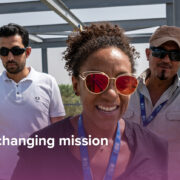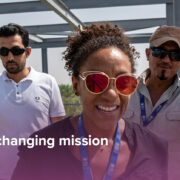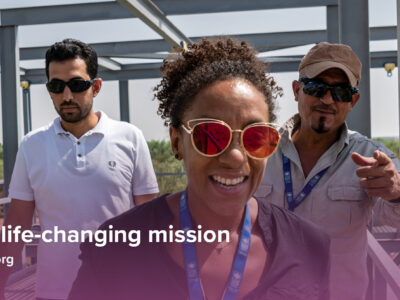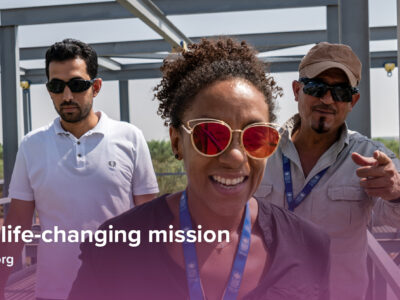UN Women is a United Nations entity dedicated to gender equality and the empowerment of women. A global champion for women and girls, UN Women was established to accelerate progress on meeting their needs worldwide. UN Women supports UN Member States as they set global standards for achieving gender equality and works with governments and civil society to design laws, policies, programs and services needed to implement these standards. It stands behind women’s equal participation in all aspects of life, focusing on five priority areas: increasing women’s leadership and participation; ending violence against women; engaging women in all aspects of peace and security processes; enhancing women’s economic empowerment; and making gender equality central to national development planning and budgeting. UN Women also coordinates and promotes the UN system’s work in advancing gender equality.
Since 2018, UN Women ECO intensified its engagement in Gambella Region, focusing on gender equality and women’s empowerment (GEWE) interventions. Using its comparative advantage, UN Women ECO, through its Program on Women Empowerment for SRMNCAH rights and access (POWER), has worked to address the barriers preventing women, children, and adolescents from demanding and realizing their rights to sexual, reproductive, maternal, new-born, child, and adolescent health (SRMNCAH) services. Universal access to SRMNCAH services is central to the 2030 Agenda for Sustainable Development and related Sustainable Development Goals (SDGs), particularly SDG 3, to ensure healthy lives and promote well-being for all at all ages, and SDG 5, to achieve gender equality and empower all women and girls.
According to the Ministry of Health, the Ethiopian Government has made remarkable achievements in reducing maternal and child mortality in the country since 2000. The Maternal Mortality Ratio has decreased from 676 deaths per 100,000 live births in 2011 (EDHS 2011) to 412/100,000 (EDHS 2016)1 indicating about 40% reduction in five years; contraceptive prevalence rate (CPR) among currently married women has shown fivefold increment, from only 8% in 2000 to 41.4% in 2019, according to the recent Mini EDHS results. Under five Mortality per 1000 live births has decreased from 123 in 2005 to 59 in 2019 (52% reduction); infant mortality from 77 to 47 (39% reduction) and neonatal mortality from 39 to 33 (15% reduction), referring to series of EDHS results.
The Ministry’s latest annual performance data on Sexual Reproductive Maternal, Newborn, Child and Adolescent Health (SRMNCAH) coverage also indicate that [in the year 2019/2020, i.e., EFY 2012], 69% of women accessed at least four rounds of antenatal care services; 63% of births were attended by skilled health personnel; 83% of women accessed early postnatal care; 84% of pregnant women were counseled for PMTCT and tested for HIV, and 91% enrolled for ART.
Regarding the legal and policy atmosphere, “MOH designed & implemented various policies, strategies, protocols & guidelines”2 to improve maternal & newborn health outcomes. There are several national policies and guidelines on SRMNCAH, including Health Transformation Plan (HTSPII), National RH strategy, National FP guideline, minimum sets of visits to antenatal care; the right of every woman to have access to skilled care during childbirth; postnatal care for mothers and newborns; management of low birthweight and preterm newborns; the requirements for maternal and neonatal deaths to be reviewed; etc
Coverage of reproductive, maternal, neonatal, and child health services (RMNCH) increased during HSTP- I. ANC1 coverage improved from 28% in 2005 to 74% in 2019 (EPHI and ICF, 2019). However, only 43% of pregnant women had four or more visits, and only 20% of women started ANC visit at the recommended time. Only 50% of women delivered in a health facility in 2019. Quality of care also remains a concern. Most young people in Ethiopia lack comprehensive knowledge on sexual and reproductive health (SRH), often engaging in risky behavior.National policies/guidelines which specifically addresses adolescent health issues include adolescent health program, including SRHR; standards for Health Promoting Schools; the standards for delivery of health services to adolescents.
However, the 2019 mini-EDHS results indicate that there is a long way to go to bring about the desired levels of changes, as maternal mortality ratio is standing at 401/100,000 livebirths (2017, WB, WHO); neonatal mortality rate 33/1000 livebirths; infant mortality 47/1000 and under-five mortality rate 59/1000 livebirths.
UN Women has supported the documentation of the Gender Barrier Analysis of available legal and policy frameworks of SRMNCAH rights and service access in humanitarian setting, conducted action research on SRMNCAH program in humanitarian setting and Gender Barrier and risk analysis through POWER program implementing partner, IMC. Findings of all studies/assessments were validated by and disseminated to relevant government stakeholders and partner organizations for future programming and policy
integration of the recommendations. Further to the assessment conducted several capacity building trainings and workshops were delivered for stakeholders mainly for MoH, MoWCY, MOF, Women parliamentarians, CSOs, RRS, and BoWCY, RHB at Gambella level.
To this end UN Women Ethiopia office is planning to hire a national consultant to document SRMNCAH gender responsive strategies at national and regional level and put recommendations based on the findings as per the below details.
2. Objectives
The main objective of this consultancy is to document SRMNCAH gender responsive strategies and policies at national and regional level and identify recommendations and lessons learned from the findings of the assessment.











Comments